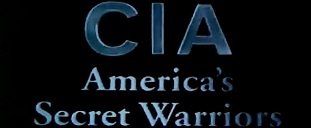Israeli-Imposed Apartheid Almost Complete in West Bank City of Hebron
Jane Adas
Washington Report on Middle East Affairs
[Trash, that is, seen from below. On a street near the Abraham Mosque, occupation apartheid takes on unusually sharp visual clarity in the form of Israeli settlements comprising the the upper echelon of houses and Palestinian shops, the lower. This means the settlers can, and do, throw their trash out their windows onto the Palestinians. The torn chain-link fence halving the street manages to keep out the somewhat solid trash like bottles and bags, but not urine, dishwater, and other ugly precipitations such as egg yolks…(Work Abroad)]
Separation ("apartheid" in Afrikaans; "us here, them there," according to the late Israeli Prime Minister Yitzhak Rabin) is almost complete in the southern West Bank city of Hebron. The Hebron Protocol of 1997 divided the city into two parts: 80 percent of the city, designated H1, is theoretically under the administration of the Palestinian Authority; H2, which includes the Old City and the Tomb of the Patriarchs, is under Israeli military control. Life for Palestinians in H1, except for occasional Israeli incursions and the fact that every plane heard overhead is military, is almost normal. Israeli settlers stay clear of the area and the uniformed men in the streets are Palestinian security forces.
H2, the eastern fifth of the city, is a different matter. A few hundred Israeli settlers and yeshiva students, guarded by more than a thousand Israeli soldiers, live here in four scattered colonies. For their security and convenience, roads that connect the colonies to each other and to the larger illegal settlements of Kiryat Arba and Givat Harsina east of the city are off-limits to Palestinians, whether by car or on foot. This includes Shuhada Street, the main road running through the center of Hebron, rebuilt in 1997 as a USAID project ostensibly to benefit both communities. The Israeli military has welded shut the doors of Palestinian homes and shops along the street, meaning that the only way residents, including schoolchildren, can leave and return to their homes is out a back door, then over rooftops and up and down ladders. - For Palestinians living there, the Old City itself is a ghetto.




























